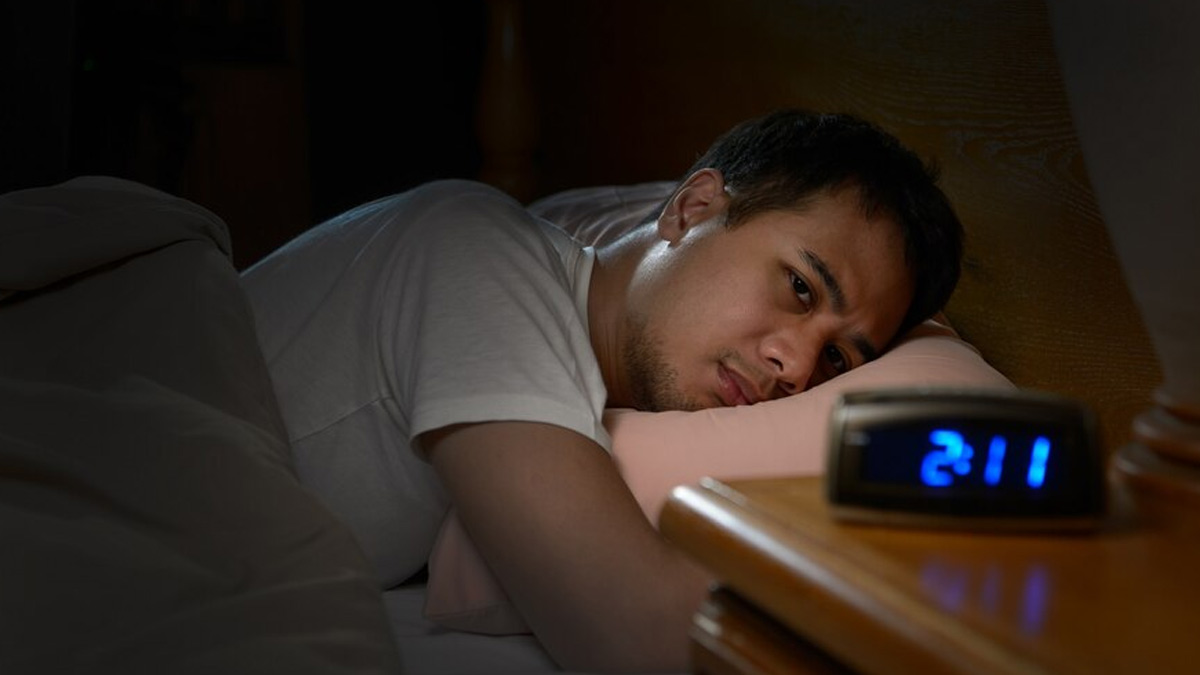
Do you find yourself tossing and turning in bed, hoping to finally catch some sleep? In this fast-paced world, insomnia and sleep problems have become increasingly prevalent issues affecting millions of people worldwide. These disturbances can contribute to a range of health issues, including diabetes, hypertension, and obesity, ultimately diminishing one's quality of life. The good news is that you can address your sleep disorders by adding specific herbs to your nighttime tea routine. We spoke to our expert Dr Ekta Singhwal, MSc Dietician, Ujala Cygnus Group of Hospitals, who listed nighttime tea to promote sleep.
Table of Content:-
Nighttime Tea To Beat Insomnia

Herbal teas have long been used for their calming and therapeutic properties, aiding in relaxation and promoting better sleep patterns. Adding certain herbs to your evening ritual can enhance relaxation, reduce stress, and improve overall sleep quality. According to the Journal of Clinical Sleep Medicine (JCSM), about 30% of the general population suffers from chronic insomnia, which is extremely common. Sleep disorders, such as insomnia affect both cognitive and physical functioning and are linked to a variety of daily impairments in emotional, social, and physical domains.
Dr Singhwal listed some potent herbs that you can add to your nighttime tea to help beat insomnia as follows:

Chamomile
Chamomile is one of the most well-known herbs used to promote relaxation and induce sleep. Dr Singhwal said, “It contains apigenin, an antioxidant that binds to certain receptors in the brain, helping to initiate sleepiness and reduce insomnia symptoms. Chamomile tea is mild and soothing, making it an excellent choice for winding down before bedtime.”
Lavender
Lavender is renowned for its calming aroma and ability to alleviate anxiety and stress. “Adding dried lavender flowers or lavender oil to your tea can help relax the mind and body, making it easier to fall asleep”, added Dr Singhwal. Lavender's sedative properties make it a popular choice for those struggling with sleep disturbances.
Also Read: Mental Health A-Z: Expert Explains Insomnia, Its Causes, Diagnosis, And Treatment
Valerian Root
Valerian root has been used for centuries as a natural remedy for insomnia and sleep disorders. Dr Singhwal said, ‘It contains compounds that increase the levels of Gamma-Aminobutyric Acid (GABA) in the brain, a neurotransmitter that promotes relaxation and sleep. While valerian root has a strong earthy flavour, combining it with other herbs can help mask its taste while reaping its sleep-inducing benefits.”
Lemon Balm
Lemon balm is a herb that belongs to the mint family and is known for its calming effects on the nervous system. It contains compounds that increase GABA levels in the brain, helping to reduce anxiety and promote relaxation. Lemon balm tea is refreshing and can help soothe both the mind and body before bedtime.
Also Read: Sleep Apnoea VS Insomnia: Expert Explains The Difference Between The Two

Passionflower
“Passionflower is a gentle herb with sedative properties that can help improve sleep quality and duration. It works by increasing levels of GABA in the brain, similar to valerian root and lemon balm”, said Dr Singhwal. Passionflower tea has a mild, slightly sweet flavour and is often used as a natural remedy for insomnia and restlessness.
Dr Singhwal highlighted, “Adding these herbs into your nighttime tea routine is simple and can be tailored to suit your personal preferences. You can use dried herbs, herbal tea blends, or even fresh herbs if available.” Simply steep the herbs in hot water for several minutes, strain, and enjoy before bedtime for maximum effectiveness.
Bottomline
Dr Singhwal concluded, “It's important to note that while herbal teas can be beneficial for promoting relaxation and improving sleep quality, they are not a cure-all solution for chronic insomnia or underlying sleep disorders. If you are experiencing persistent sleep problems, it's essential to consult with a healthcare professional to address any underlying issues and explore appropriate treatment options.”
[Disclaimer: This article contains information provided by an expert and is for informational purposes only. Hence, we advise you to consult your expert before adding anything to your diet, especially if you are dealing with any health issues.]
Also watch this video
How we keep this article up to date:
We work with experts and keep a close eye on the latest in health and wellness. Whenever there is a new research or helpful information, we update our articles with accurate and useful advice.
Current Version